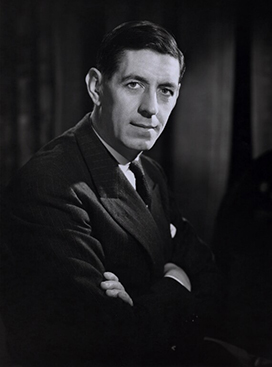Edward du Cann
(politician, businessman) | |
|---|---|
 | |
| Born | 28 May 1924 |
| Died | 31 August 2017 (Age 93) |
| Nationality | UK |
| Alma mater | Colet Court, Woodbridge School, St John's College (Oxford) |
Sir Edward Dillon Lott du Cann was a British politician and businessman.
Early life
Du Cann was educated at Colet Court, Woodbridge School and St John's College, Oxford, where he was a friend of Kingsley Amis. During the Second World War, he was commissioned as an officer in the Royal Navy. Serving as a lieutenant in motor torpedo boats based in East Anglia patrolling the North Sea, he served alongside both Owen Aisher (later a yachtsman and entrepreneur) and David Wickins (the founder of British Car Auctions and an entrepreneur).[1][2] At the end of the war, he became a company director.
Career
In 1951, du Cann contested Walthamstow West and, in 1955, Barrow-in-Furness, on both occasions without success. He was elected as MP for Taunton in a 1956 by-election. Du Cann was Economic Secretary to the Treasury from 1962 and as a Minister of State at the Board of Trade 1963–64. He was then the chairman of the Conservative Party from 1965 to 1967, and chairman of the 1922 Committee from 1972 to 1984. He was sworn of the Privy Council in 1964.
Rise of Margaret Thatcher
In 1974, du Cann played a part in the events surrounding the elevation of Margaret Thatcher to the leadership of the Conservative Party. Following two narrow defeats for the Conservatives at the polls, in February and October 1974, significant disquiet in the party had developed over the leadership of Edward Heath, who had lost three elections as leader. On 14 October 1974, the executive of the 1922 Committee met at du Cann's home, amidst a good deal of press attention.
He was criticized as "incompetent" by a 1974 Department of Trade and Industry report regarding the bankrupt Keyser Ullman bank, of which he was a director.[3] Du Cann did not put himself forward as a candidate in the leadership contest. This released key support for Margaret Thatcher, especially as another potential right-wing candidate, Keith Joseph, withdrew from any leadership attempt following a series of controversial speeches on social policy. Consequently, after defeating Heath in the first round, Thatcher emerged triumphant in the second round in early 1975, defeating a number of other candidates who would play significant roles in her subsequent premiership.[4]
Post-political retirement
Du Cann retired from the House of Commons in 1987, selling his home Cothay Manor in 1993 and returning to live in London.
Du Cann succeeded Duncan Sandys as chairman of Lonrho, a position from which he was forced to resign due to his role as deputy chairman of Homes Assured, a finance company which crashed.[3] His resignation came two days before the company collapsed, owing £10 million to creditors.[5] Du Cann was involved in several legal disputes over debts; his Somerset estate was repossessed in 1992 and his London flat was repossessed in 1993. He later had a bankruptcy order served against him.[6]
He was a board member of E-Clear, a British payment processing company, which went into administration in January 2010.[7]
References
- ↑ https://www.telegraph.co.uk/news/obituaries/1541089/David-Wickins.html
- ↑ https://web.archive.org/web/20130623102205/http://www.gethampshire.co.uk/news/s/2007738_auctions_magnate_began_by_selling_just_one_old_car
- ↑ a b Bower, Tom (1998). Fayed: The Unauthorized Biography. Macmillan. ISBN 978-0-333-74554-0
- ↑ Phillip Whitehead The Writing On The Wall – Britain In The Seventies (London: Michael Joseph, 1985), pp. 326–27.
- ↑ https://www.independent.co.uk/news/uk/du-cann-will-apply-to-have-bankruptcy-order-lifted-former-chairman-of-conservative-party-faced-petition-for-solicitors-bills-1499860.html
- ↑ https://www.independent.co.uk/news/uk/du-cann-struggles-to-buy-back-his-estate-1540724.html
- ↑ http://business.timesonline.co.uk/tol/business/industry_sectors/transport/article6968478.ece